Local Initiatives Produce Protection for Frontline Workers
Donnez La Protection and Protection Collective Materialize During a Time of Need
When it became apparent there was not enough personal protective equipment, or PPE, for the COVID-19 frontline workers at the Jewish General Hospital, Alex Magdzinski, ER nurse, reached out for help via Facebook. He asked if anyone had protective equipment they would be willing to donate to frontline workers at the hospital.
Multiple initiatives across the city bubbled to the surface, from individuals printing their own PPE at home with 3D printers, to those distributing masks. Magdzinski quickly became a part of a growing network that aims to provide PPE to all frontline workers during the COVID-19 pandemic.
The limited supply of PPE, especially in the medical field, has left the province of Quebec scrambling for gear for their frontline workers. Most equipment is manufactured abroad, with many shipments coming from China, explained Yuxin Mei.
Mei is the founder of Donnez La Protection, a website that links PPE manufacturers to frontline healthcare workers across the province. The gear is essential, and the shortage has negatively impacted frontliners.
For Mei, a dentist originally from China, COVID-19 hits home. His wife’s family comes from Wuhan, where the virus originated last December.
As social distancing regulations forced Mei to temporarily close his practice, Mei found himself with a surplus of PPE. He decided to donate it to frontline workers at local hospitals.
Networking with friends and community members online, Mei started Donnez La Protection.
“It was basically a grassroots movement,” Mei explained. “I just had the initiative to take it further.”
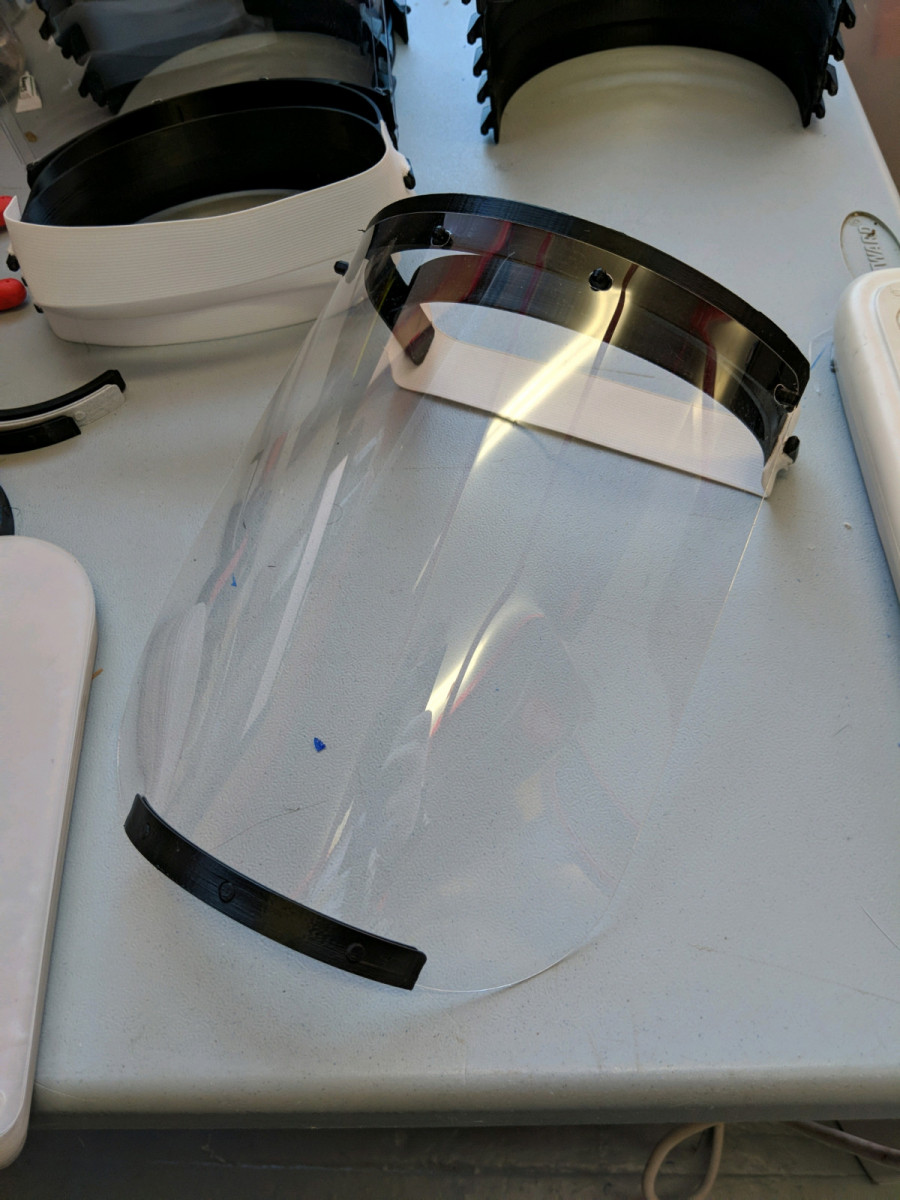
He called his friend, with whom he had done a lot of work within the Chinese community. “She said, ‘It’s a good time to get our people to help out and show solidarity and donate and make a change,’” Mei recalled. At first, the initiative was within their community—but Mei recognized its potential to reach a wider audience.
“The virus knows no ethnicity, knows no cultural background,” said Mei.
Only two weeks old, Donnez La Protection has garnered interest across the province. From Montreal to the northern town of Inuulitsivik, the group aims to reach as far as they can, said Mei. Last week, they sent PPE to frontline doctors in northern Quebec by plane. “There are obviously some limitations to what we can do, but we’re trying our best,” he said.
Donations to Donnez La Protection come from all over, according to Mei—including local initiatives 3D printing PPE from home. “You have business owners like me who have these masks who believe they need to be put to better use,” Mei explained. “We have construction businesses, people who use face shields as students, or entrepreneurs using open-source or 3D [studios].”
Protection Collective, another organization formed via social media, is a group of over 50 students, small business owners, and healthcare workers around Montreal working together to 3D print PPE.
The stop-gap initiative is currently running a no-contact 3D-printing production line across the city. From printing and assembling parts to distributing PPE across Montreal, the collective aims to offset the shortages of PPE to frontline workers, according to its website.
“Ideally, 3D printing is not the best way to mass-produce anything,” said Tailor Dresden, member of the collective and a 3D printer currently working out of Foulab, a “hackerspace” in St-Henri. The best way, he explained, is for large-scale manufacturing corporations to retool their supply chains to pump out medical PPE.
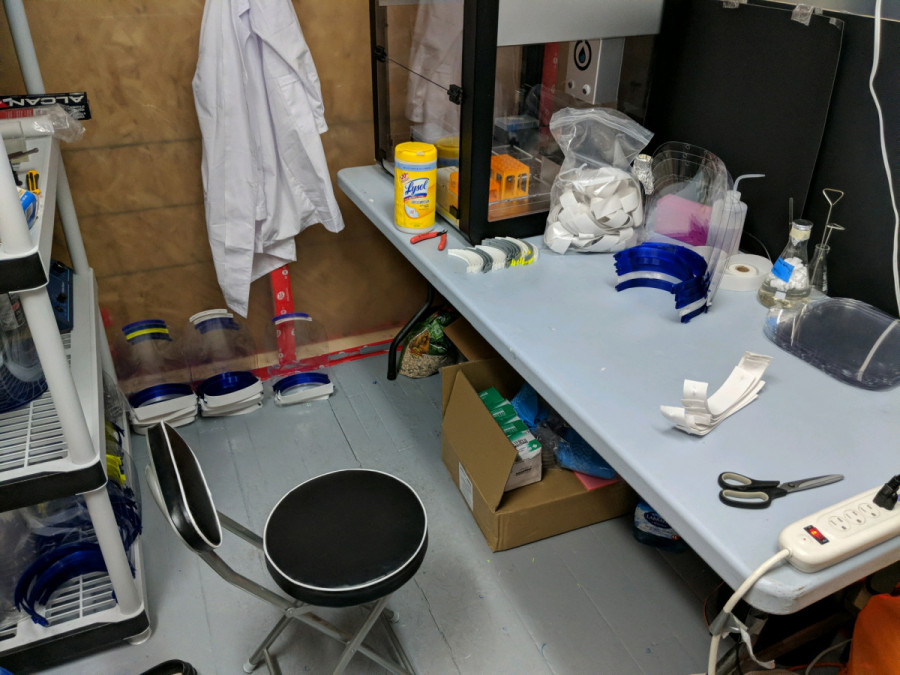
However, with so many people involved in the collective, the challenge lies in setting up a no-contact supply chain. “Lots of people are involved, but you don’t want lots of people meeting in person. That would make the situation worse,” he said.
Despite growing difficulties as social distancing regulations tighten, the collective has adapted to continue its operations safely. “Those with time and cars and buckets of bleach are doing pickup, [and a] manufacturing company with a clean room and an entire staff […] is taking over assembly and sterilizing,” said Dresden. “And there are all these volunteers at home with 3D printers [producing] parts, sterilizing them, and shipping them off to the next person.”
Some of the 3D printers currently at Foulab were temporarily donated from Concordia’s IT Sandbox.
People are being both organized and realistic, Dresden said. “Out of dozens, I’ve only seen one or two with a hero complex. We’re filling a stop-gap need, temporarily, until the proper supply chains get ramped up.”
Some of the collective’s first donations were made to the Jewish General Hospital, but the hospital’s COVID-19 center will be using N95 masks until they run out, said Magdzinski.
Though the Collective’s masks aren’t yet medically approved, they are easier to disinfect, and potentially safer to reuse, according to Magdzinski. “The virus can actually sit in the foam [of the N95 mask], and if you touch it and touch your face, you can actually infect yourself,” he said.
Usually, N95 masks are one-time use, but currently, Magdzinski said COVID-19 centre workers use one for the entire day. When they are out of masks, they have a stock of 100 face shields donated by the Collective.
Currently, Protection Collective has produced over 700 face shields, and Donnez La Protection continues to meet demands across the province.
“Every day somebody asks, ‘How can I help you guys? How can I get involved?’” said Mei. “A lot of people have a shared vision for the need. Everybody’s on the same page: Do their job to get PPE to the people that use them.”

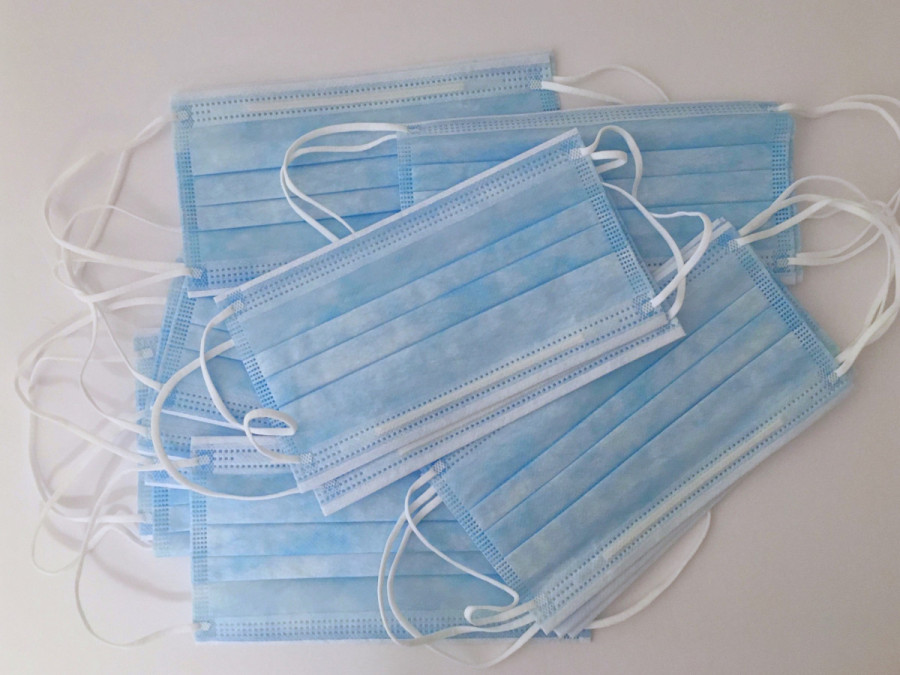

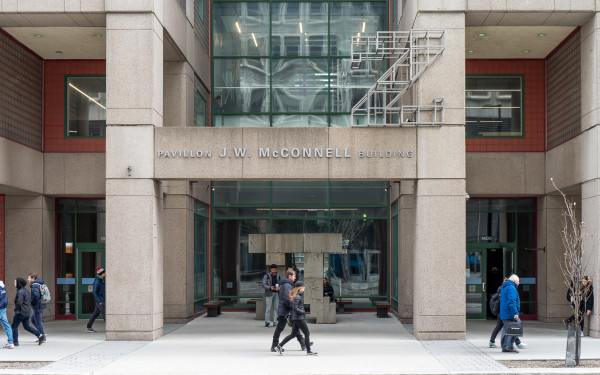
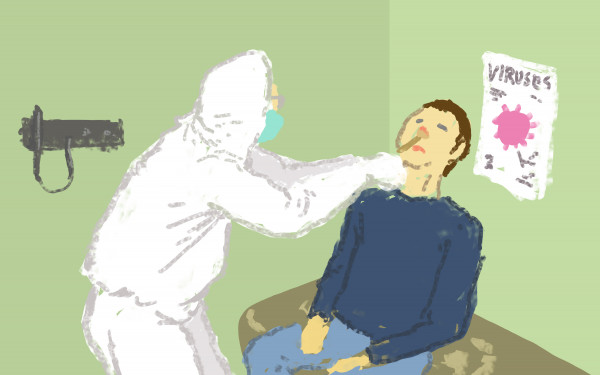
_600_375_90_s_c1.jpg)
